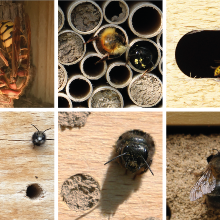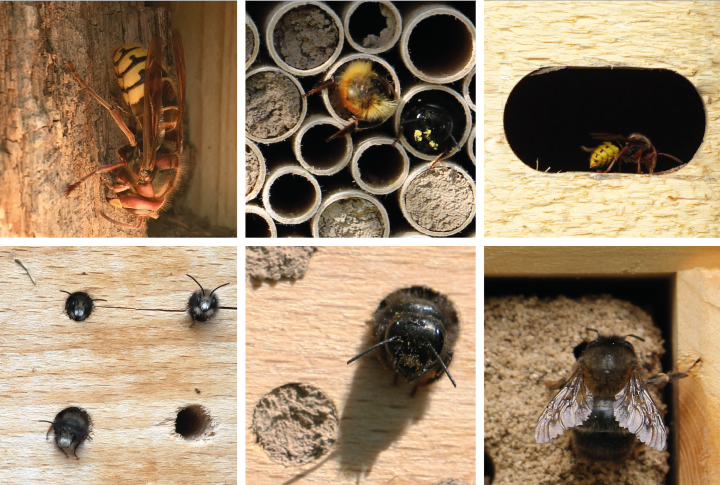Insects often go unnoticed, and yet they are so valuable to us humans. Whether wild bees and flies as pollinators of plants, or ladybugs and other flies to control aphids. Their diversity and numbers are severely endangered due to habitat loss, the use of pesticides and man-made climate change. For this reason, the UrbanInsects project at the University of Stuttgart is dedicated to encouraging insect biodiversity. The focus is on the development, investigation and testing of façade-integrated habitat systems for insects. These are integrated into the building envelope and function as nesting sites for small beneficial insects, among other purposes.
The Habitat systems can be used in both existing and new buildings in the public and private sectors. Many questions arise during implementation: How must the artificial habitats be designed so as not to damage the fabric of the building? What types of insects accept the habitat systems and how does this affect the design? How can it be ensured that the comfort of the residents of the buildings is not negatively affected by changes to the façade? And might such direct contact change their attitude towards insects?
Project partners
Regarding these questions, the project partners are committed to addressing a wide range of aspects.
- The Institute for Acoustics and Building Physics (IABP) at the University of Stuttgart is investigating both the building physics feasibility (i.e. the installation and its effects in the building envelope) and the ecological target values, such as the comfort range of the insects.
- The Center for Interdisciplinary Risk and Innovation Studies at the University of Stuttgart (ZIRIUS) focuses on studying the social perception and evaluation of insects and artificial habitats as a strategy to conserve biodiversity.
Measures aimed at preserving biodiversity
While artificial habitats alone cannot fully compensate for the loss of natural habitats, they can serve as a useful supplementary measure to expand habitats within (large) cities and contribute to preserving biodiversity. The project results can therefore offer valuable insights that support the transformation towards creating sustainable, and biodiverse cities. UrbanInsects is funded as part of the Federal Biological Diversity Program, by the Federal Agency for Nature Conservation (BfN); with funds from the Federal Ministry for the Environment, Nature Conservation, Nuclear Safety and Consumer Protection (BMUV). This funding will run until June 2026 and totals around 956,000 EUR.
Background information
The Federal Agency for Nature Conservation (BfN) and the Federal Ministry for the Environment, Nature Conservation, Nuclear Safety and Consumer Protection (BMUV) are currently funding many projects that implement measures for ecological urban nature in the Federal Biological Diversity Program. UrbanInsects will also be supported by the Federal Biodiversity Program until June 2026, with funding totaling approximately 956,000 EUR.
The prioritization of urban nature within the framework of the Federal Biological Diversity Program is a key initiative of the Urban Nature Master Plan. This master plan was adopted by the federal government in 2019 and is aimed at creating vibrant and appealing cities through various measures. The aim is to increase the proportion of near-natural, species-rich and structurally correct green and open spaces in urban areas. This is achieved through ecological green space management and aims to improve the greening of cities and municipalities, which promotes biodiversity.



